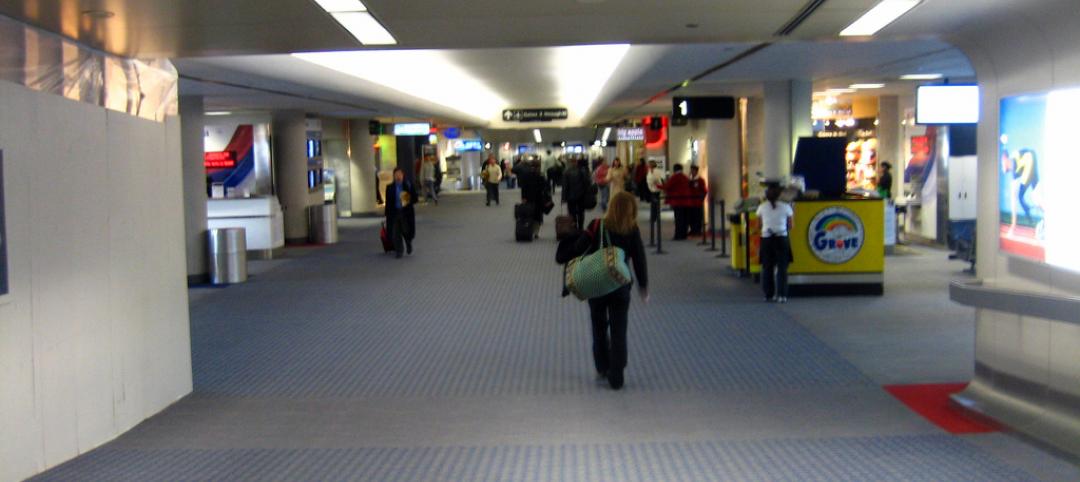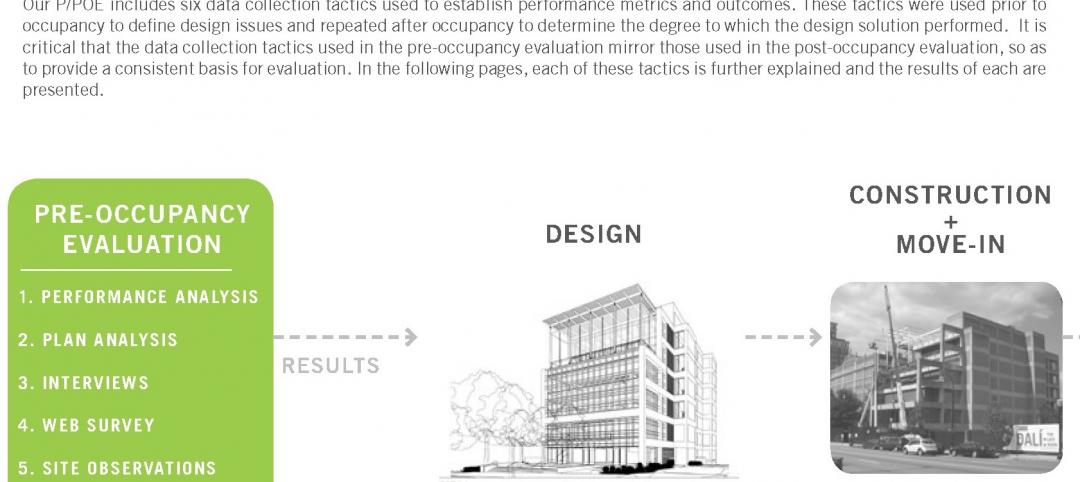Today, JetBlue Airways opened the T5 Rooftop atop Terminal 5 at John F. Kennedy (JFK) International Airport in New York. Designed by Gensler, the vegetated rooftop is open to everyone who clears security at the terminal and offers spectacular views of Manhattan and the adjacent TWA Terminal.
In keeping with the vision for all of Terminal 5, the design emphasizes well-being and offers customers unexpectedly delightful places to spend time at the airport. Even traveling pets will enjoy the park, as it boasts the first airside, post-security dog walk area on a rooftop.
The 4,046-sf rooftop includes landscaped green spaces, seating for 50 people, 400-sf children’s play area, and a 400-sf dog-walk area. Unlike other rooftop clubs at U.S. airports, the park is open to all customers who clear security at T5, not just VIPs or “elite-status” flyers.
Photo: © Paúl Rivera, courtesy of Gensler
“We are New York’s Hometown Airline, so T5 was designed to show off the pride we have for our city. We brought many elements of our city into T5, including the new T5 Rooftop," said Rich Smyth, vice president, corporate real estate, JetBlue.
“Gensler’s design strategy was to look for ways to make the most of moments that travelers take for granted, and part of that is seeking out spaces at the airport that designers typically overlook. The roof park is yet another way to surprise JetBlue customers with fun experiences that you don’t usually have at an airport,” said Gensler architect and Principal Ty Osbaugh.
Also on the Building Team: Arup, Turner Construction, and The Port Authority of New York and New Jersey.
Photo: © Paúl Rivera, courtesy of Gensler
Related Stories
| Dec 8, 2014
Moshe Safdie wants to reinvent airports with Jewel Changi Airport addition
A new addition to Singapore's Changi Airport, designed by Moshe Safdie, will feature a waterfall and extensive indoor gardens.
| Nov 19, 2014
The evolution of airport design and construction [infographic]
Safety, consumer demand, and the new economics of flight are three of the major factors shaping how airlines and airport officials are approaching the need for upgrades and renovations, writes Skanska USA's MacAdam Glinn.
| Nov 18, 2014
Grimshaw releases newest designs for world’s largest airport
The airport is expected to serve 90 million passengers a year on the opening of the first phase, and more than 150 million annually after project completion in 2018.
| Nov 14, 2014
JetBlue opens Gensler-designed International Concourse at JFK
The 175,000-sf extension includes the conversion of three existing gates to international swing gates, and the addition of three new international swing gates.
Sponsored | | Nov 12, 2014
Eye-popping façade highlights renovation, addition at Chaffin Junior High School
The new distinctive main entrance accentuates the public face of the school with an aluminum tube “baguette” system.
| Oct 26, 2014
New York initiates design competition for upgrading LaGuardia, Kennedy airports
New York Gov. Andrew Cuomo said that the state would open design competitions to fix and upgrade New York City’s aging airports. But financing construction is still unsettled.
| Oct 16, 2014
Perkins+Will white paper examines alternatives to flame retardant building materials
The white paper includes a list of 193 flame retardants, including 29 discovered in building and household products, 50 found in the indoor environment, and 33 in human blood, milk, and tissues.
| Oct 12, 2014
AIA 2030 commitment: Five years on, are we any closer to net-zero?
This year marks the fifth anniversary of the American Institute of Architects’ effort to have architecture firms voluntarily pledge net-zero energy design for all their buildings by 2030.
| Sep 24, 2014
Architecture billings see continued strength, led by institutional sector
On the heels of recording its strongest pace of growth since 2007, there continues to be an increasing level of demand for design services signaled in the latest Architecture Billings Index.
| Sep 22, 2014
4 keys to effective post-occupancy evaluations
Perkins+Will's Janice Barnes covers the four steps that designers should take to create POEs that provide design direction and measure design effectiveness.















